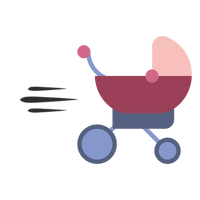Parenting isn't easy. Good parenting is hard work. These 10 great parenting tips will help you.
What Makes A Good Parent?
A good parent is someone who strives to make decisions in the best interest of the child.
What makes a good parent is not only defined by the action of the parent, but also by their intention.
A good parent doesn't have to be perfect. No one is perfect. None child isn't perfect either…keep that in mind mind is important when we set our expectations.
Successful parenting is not about achieving perfection. But that doesn't mean we shouldn't work towards this goal. Set high standards for ourselves first, then our children second. We are role models for them.
Here are 10 tips to learn good parenting skills and avoid bad parenting . Many of them aren't quick or easy. And probably no one can do them all all the time. But if you can keep working on the advice in this parenting guide, even if you can only do part of it once in a while, you will always be moving in the right direction.
How To Be A Good Parent - Top 10 Parenting Tips
#1 BE A GOOD ROLE MODEL
Walk the walk. Don't just tell your child what you want them to do. Show them.
Humans are a special species partly because we can learn by imitation1. We are programmed to copy the actions of others to understand them and integrate them into our own. Children, in particular, watch everything their parents do very carefully.
So be the person you want your child to be - respect your child, show them positive behavior and attitude, empathize with your child's emotions - and your child will follow.
#2: LOVE THEM AND SHOW THEM THROUGH ACTION

Show your love .
There's nothing quite like loving your child too much. Loving them can't waste them2. Only what you choose to do (or give) in the name of love can do that – things like material indulgence, leniency, low expectations, and overprotection. When these things are given in place of true love, that's when you'll have a spoiled brat.
Loving your child can be as simple as cuddling , spending time with them and listen seriously to his problems every day.
Showing these acts of love can trigger the release of feel-good hormones like oxytocin. These neurochemicals can provide us with a deep sense of calm, emotional warmth, and contentment, from which the child will develop their resilience and not to mention a closer relationship with you. 3.
For more help calming tantrums, check out this step-by-step guide

#3: PRACTICE KIND AND STRONG POSITIVE PARENTING
Babies are born with approximately 100 billion brain cells (neurons) with relatively few connections. These connections create our thoughts, guide our actions, shape our personality, and fundamentally determine who we are. They are created, reinforced and "sculpted" through experiences throughout our lives.
Provide your child with positive experiences. They will have the ability to have positive experiences themselves and offer them to others4.
Give your child negative experiences. They won't have the kind of development needed to thrive.
Sing that silly song. Have a tickle marathon. Go to the park. Laugh with your child. Go through an emotional crisis. Solve a problem with a positive attitude.
Not only do these positive experiences create good connections in your child's brain, they also form the memories of you that your child carries throughout their life.
When it comes to discipline, it seems hard to stay positive. But it is possible to practice Positive Discipline and avoiding punitive measures .
Being a good parent means teaching your child the morals of what's right and what's not. Setting boundaries and being consistent are the keys to good discipline. Be kind and firm when enforcing these rules. Focus on the reason for the child's behavior. And make it an opportunity to learn for the future, rather than punish for the past.
#4: BE A SAFE HAVEN FOR YOUR CHILD
Let your child know that you will always be there for them by being sensitive to the child's cues and responsive to their needs. Support and accept your child as an individual. Be a warm and safe haven for your child to explore from.
Children raised by parents who are consistently responsive tend to have better development of emotional regulation, the development of social skills and mental health outcomes5.
#5: TALK WITH YOUR CHILD AND HELP THEIR BRAIN INTEGRATE
Most of us already know the importance of communication. Talk to your child and also listen carefully.
By keeping an open line of communication, you will have a better relationship with your child and your child will come to you if there is a problem.
But there's another reason for communication: you're helping your child integrate different parts of their brain.
Integration is similar to our body in which different organs need to coordinate and work together to maintain a healthy body. When different parts of the brain are integrated, they can function harmoniously as a whole, which means fewer tantrums, more cooperative behavior, more empathy and improved mental well-being. 6.
To do this, speak through disturbing experiences. Ask your child to describe what happened and how they felt to develop a responsive communication7. You don't have to provide solutions. You don't need to have all the answers to be a good parent. Just listening to them talk and asking clarifying questions will help them make sense of their experiences and integrate their memories.
#6: REFLECT ON YOUR OWN CHILDHOOD
Many of us want to be parents differently from our parents. Even those who had a good upbringing and a happy childhood may want to change certain aspects of their upbringing.
But very often when we open our mouths, we speak like our parents did .
Reflecting on our own childhood is a step towards understanding why we breed the way we do. Take note of the things you would like to change and think about how you would do it differently in a real-life scenario. Try to be considerate and change your behavior the next time these issues arise.
Don't give up if you don't succeed at first. It takes practice, lots of practice, to consciously change the way you educate your children.
#7: PAY ATTENTION TO YOUR OWN WELL-BEING

Parents also need relief.
Pay attention to your own well-being.
Often things like your own health or the health of your marriage are put on the back burner when a child is born. If you don't pay attention, they will become bigger problems down the road8. Take time to strengthen your relationship with your spouse.
Stressed parents are more likely to fight . Don't be afraid to ask for parental help. Having "me time" to take care of yourself is important for rejuvenating the spirit.
How parents can take care of themselves physically and mentally will make a big difference in their parenting and family life. If these two areas fail, your child will suffer too.
#8: DON'T SPANK NO MATTER
There is no doubt that for some parents spanking can lead to short-term obedience, which is sometimes a much-needed relief for parents.
However, this method does not teach the child right from wrong. It only teaches the child to fear external consequences. The child is then motivated to avoid getting caught instead.
Spanking your child shows your child that they can solve problems through violence9. Children who are spanked, slapped or hit are more likely to fight with other children. They are more likely to become bullies and use verbal/physical aggression to resolve disputes. Later in life, they are also more likely to lead to delinquency and antisocial behavior, deterioration of parent-child relationships, mental health problems, and victims or perpetrators of domestic violence. 10.
There are a variety of better alternatives to discipline that have been shown to be more effective11, such as positive discipline (tip #3 above) and positive reinforcement .
#9: KEEP THINGS IN PERSPECTIVE AND REMEMBER YOUR PARENTAL GOAL
What is your goal of raising a child ?
If you're like most parents, you want your child to do well in school, to be productive, responsible and independent, respectful, to have meaningful relationships with you and others, to be caring and compassionate , and have a happy, healthy and fulfilling life.
But how much time do you spend working towards those goals?
If you're like most parents, you probably spend most of your time trying to get through the day. As the authors, Siegel and Bryson, point out in their book, The Whole-Brain Child ,
To not let survival mode dominate your life, the next time you feel angry or frustrated, take a step back. Think about what anger and frustration will do to you or your child. Instead, find ways to turn every negative experience into a learning opportunity for him. Even epic tantrums can be turned into precious brain-sculpting moments if you don't focus on controlling your child .
Doing this will not only help you maintain a healthy outlook, but you will also be working on one of your main parenting goals - establish a good relationship with your child.
#10: TAKE A SHORTCUT BY USING THE LATEST RESEARCH RESULTS IN PSYCHOLOGY AND NEUROSCIENCE
By shortcuts, I don't mean short-circuiting your child. What I mean is take advantage of what scientists already know.
Parenting is one of the most studied areas in psychology. Many parenting techniques, practices, or traditions have been scientifically researched, verified, refined, or disproved.
For the best parenting tips and science-backed information, here is one of my favorite science parenting books , The Science of Parenting .
The use of scientific knowledge is of course not a universal strategy. Every child is different. Even in the best parenting style there can be many effective parenting practices that you can choose from function of the temperament of your child .
For example, besides spanking, there are many better alternatives, e.g. redirection, reasoning, removal of privileges, entry time, etc. You can choose the non-punitive method of discipline that works best for your child.
Of course, you can also choose to use "traditional" or "old fashioned" parenting styles (e.g. spanking) and you can still achieve the "same" result.
According to the Diathesis-Stress model , people at risk of suffering from a psychological disorder are more likely develop one when under stress. Diathesis, or vulnerabilities, can be biological or environmental.
Maybe the kid is lucky and doesn't have such vulnerabilities. They can be resilient and prevail no matter how harshly the parents treat their child.
But they may not be.
So the importance of parenthood cannot be underestimated. Why risk the damage that some poor practices can create when there are better, well-documented ones?
Taking these “shortcuts” may require more work on your part in the short term, but can save you a lot of time and agony in the long run.
Final Thoughts On Parenting
The good thing is that while parenting is hard, it's also very rewarding. The bad part is that the rewards usually come much later than the hard work. But if we do our best now, we'll eventually reap the rewards and have nothing to regret.
To happy parenthood!




